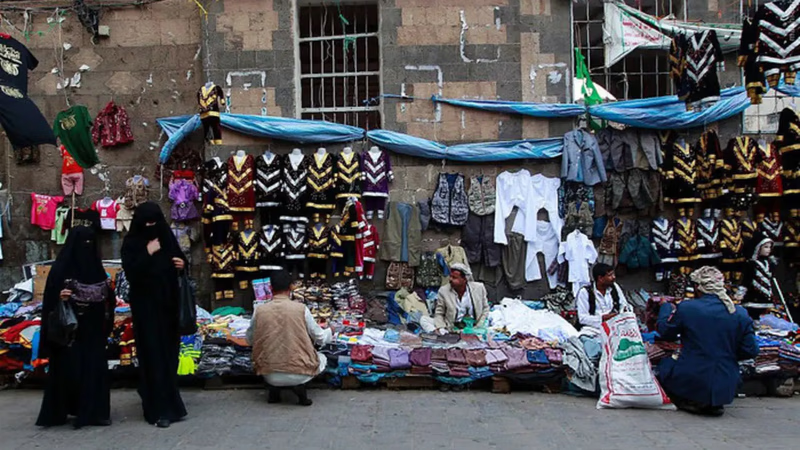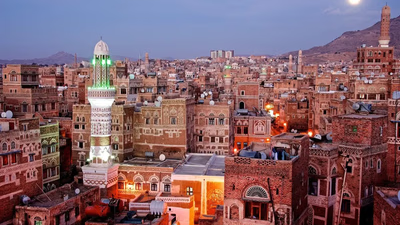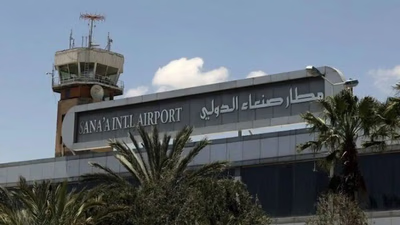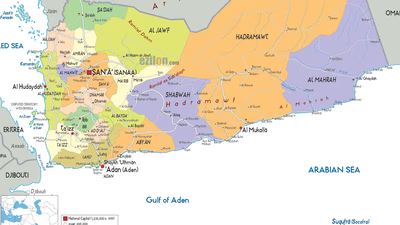
Yemen"s economy relies on agriculture and oil production. "
Yemen's legal framework is primarily governed by its constitution. The current constitution of Yemen was adopted in 2001 and outlines the fundamental principles, structure of government, and rights of individuals in the country. Yemen is an Islamic country, and Islamic law, known as Sharia, is an important source of legislation. Sharia principles influence various aspects of personal, family, and criminal law in Yemen. Yemen has a civil law system based on the French legal system. It includes statutes and regulations that cover various areas of civil, commercial, and administrative law.
Commercial activities in Yemen are governed by the Yemeni Commercial Code. The code addresses matters related to contracts, business entities, commercial transactions, and other commercial aspects. Property rights and ownership in Yemen are governed by laws related to real estate and property. These laws address issues such as land ownership, property transfers, and registration of property rights. Yemen has laws to protect intellectual property rights, including copyrights, trademarks, and patents. These laws aim to safeguard the rights of creators, inventors, and innovators.
The Yemeni people are not interested in wearing the non-hijab, and this has become a law regarding the hijab in Yemen. In the laws of Yemen, life is seen in a special way, and it is clear that the path of life in this country is accompanied by contentment. The four-year economic blockade of Yemen, along with the destruction of its infrastructure by the Saudi coalition, has made the country practically a bankrupt economy.
Yemen has always been known as the poorest Arab country, as it has witnessed internal conflicts and the intervention of regional and supra-regional powers since the 1960s. The war between the north and the south in 1994 destroyed a lot of financial resources and increased military and armaments spending, but since 2015 and the beginning of the Saudi-led Arab coalition's aggression against Yemen, the country's poverty and economic situation has worsened.
Agriculture is an important part of the Yemeni economy, which was severely affected by the foreign invasion. One of the most important export products of Yemen is a special coffee to this country called "Moka", which is the name of the area under cultivation of this coffee. This product was exported to many countries of the world before the war, which is why the name Moka was used in Western languages to name this particular type of coffee.
But over the past decades, coffee cultivation in Yemen has declined, and Yemeni farmers have limited themselves to producing the qat drug for domestic needs. In 2012, the area under coffee cultivation was about 34,500 hectares, while the cultivation of "qat" plant was about 162,500 hectares of land. Yemeni coffee production reached 1,800 tonnes this year, while qat reached 190,800 tonnes. Experts believe that in order to save Yemen's agricultural industry, it is necessary to strengthen the country's ability to produce and export food products.
In the oil and gas sector, the war has made Sanaa unable to use this important economic and talented sector in Yemen. Yemeni oil production in 2014 was 133,000 barrels per day. Yemeni gas production this year amounted to 270 billion cubic feet. But now that Yemen is at war, and even before that, production in these sectors is facing security problems. Thus, the Yemenis are now forced to restore political security to their country in order to revive the economy and save millions from poverty.
Family matters in Yemen are primarily regulated by Islamic law. Issues such as marriage, divorce, child custody, and inheritance are governed by Sharia principles. Criminal offenses in Yemen are addressed by the Yemeni Penal Code. The penal code specifies different crimes and their corresponding punishments. Sharia principles also influence certain aspects of criminal law. The labor rights and employment relationships in Yemen are regulated by the Yemeni Labor Law. It covers areas such as employment contracts, working conditions, wages, hours of work, leave entitlements, and termination of employment.
-

Yemen"s economy has faced severe challenges due to ongoing conflict, leading to a significant contraction in GDP and high inflation rates. The disruption of supply chains and reduced domestic production have increased reliance on imports, resulting in widespread job losses and high unemployment. The humanitarian crisis has escalated, with millions requiring assistance for basic needs such as food and healthcare. Despite these challenges, Yemen"s trade system has shown growth, with a 74% increase in export and import activities. The current account balance is approximately 13%, indicating some resilience in trade processes. However, the depreciation of the Yemeni rial has created exchange rate volatility, complicating business operations. Foreign direct investment is projected to grow by 15%, while crude oil production remains significant at over 11%. Yemen"s ease of doing business has improved by 18%, reflecting potential opportunities for trade despite the political instability that deters international investment.
The conflict has also disrupted trade routes and hindered commercial activities, but humanitarian aid imports remain vital. Overall, while Yemen faces substantial economic hurdles, there are signs of growth in certain sectors that could be leveraged for future development. "
-

Saudi Arabia and the UAE have been pivotal in supporting Yemen"s internationally recognized government through military and humanitarian aid. The U. S. has also played a role by providing military support and facilitating peace negotiations. Various international organizations, including the World Bank and IMF, are engaged in addressing Yemen"s humanitarian crisis. The demographic profile of Yemen shows a young population with a literacy rate of about 50%. Recent improvements in economic conditions are evident, particularly in the organic food sector and machine equipment production. Urbanization efforts are underway, with significant growth in construction and transportation sectors.
The Yemeni government is increasingly visible in its investment strategies, aiming to enhance economic stability. Additionally, the UN and EU have been active in promoting peace and development initiatives, while other Gulf Cooperation Council (GCC) countries contribute through aid programs. The evolving dynamics of international support reflect the complexities of the ongoing conflict and humanitarian needs.
-

Yemen"s legal framework is shaped by its 2001 constitution, which establishes the government"s structure and individual rights. Islamic law, or Sharia, significantly influences personal, family, and criminal law. The civil law system, based on French law, includes the Yemeni Commercial Code that governs commercial activities such as contracts and business transactions. Property rights are regulated by laws concerning real estate ownership and transfers. Intellectual property laws protect creators" rights. The ongoing conflict has severely impacted Yemen"s economy, leading to increased poverty and a decline in agricultural production. Coffee, particularly Moka coffee, was once a significant export but has diminished due to war conditions. The agricultural sector now primarily focuses on qat cultivation for domestic use.
Oil and gas production has also suffered due to security issues stemming from the conflict. Family matters are largely governed by Sharia principles, while labor rights are outlined in the Yemeni Labor Law. Restoring political stability is crucial for reviving Yemen"s economy and alleviating poverty. "
-

Yemen"s major cities, including Aden, Taiz, Al Hudaydah, Mukalla, Ibb, Dhamar, and Sayyan, play crucial roles in the country"s trade and commerce landscape. Aden serves as a strategic port city along the Gulf of Aden, facilitating significant import and export activities. Al Hudaydah is another vital port on the Red Sea coast that acts as a gateway for trade despite ongoing conflicts. Taiz is recognized for its historical significance and has developed into an academic hub. Mukalla stands out as a commercial center in southeastern Yemen, while Ibb is known for its agricultural contributions. Dhamar boasts historical sites and is advancing economically. Sayyan combines scenic beauty with agricultural activities and tourism potential. The historical context of Yemen reveals a rich trading legacy dating back to ancient civilizations like the Sabaeans and Qutban.
The region"s strategic location has historically linked trade routes from the Persian Gulf to the Mediterranean Sea, making it an essential player in regional commerce. "
-

Yemen"s export and import system is significantly influenced by ongoing conflict, which has severely disrupted trade activities. The country traditionally exports crude oil, LNG, refined petroleum products, fish, and agricultural goods like coffee and honey. Key ports such as Aden, Hodeidah, and Mukalla are vital for these exports but have suffered from infrastructure damage due to the conflict. Despite these challenges, Yemen"s export and import system has shown growth of 74%, indicating a persistent effort to engage in trade. The economy relies heavily on imports for essential commodities like food and fuel due to insufficient domestic production capacity. The humanitarian crisis exacerbated by the conflict has made importing basic necessities crucial for survival. Additionally, Yemen"s ease of doing business has improved by 18%, suggesting potential opportunities for B2B marketplaces in the region. However, challenges remain with supply chain disruptions and security concerns affecting both importers and exporters. The reliance on international aid highlights the urgent need for effective supply chain solutions in Yemen"s trade landscape.
-

Yemen, located at the southern entrance of the Red Sea, serves as a vital trade hub due to its strategic position. The country has several key ports, including Aden and Hodeidah, facilitating significant import and export activities. Recent years have seen a shift in Yemen"s import landscape, with live food and livestock becoming predominant. Despite ongoing conflicts, Yemen"s economy has shown resilience, with a reported 12% growth in revenue generation and a notable 20% increase in GDP growth rate. Trade balances have improved by 14%, while the export-import system has expanded by 74%. The capital turnover situation has also increased by 17%, indicating a positive trend in economic activity. Improvements in infrastructure and ease of doing business have been observed, with internet speed rising by 12%. However, Yemen continues to face economic challenges due to political instability. The diverse climate across the country affects agricultural productivity and trade dynamics.






